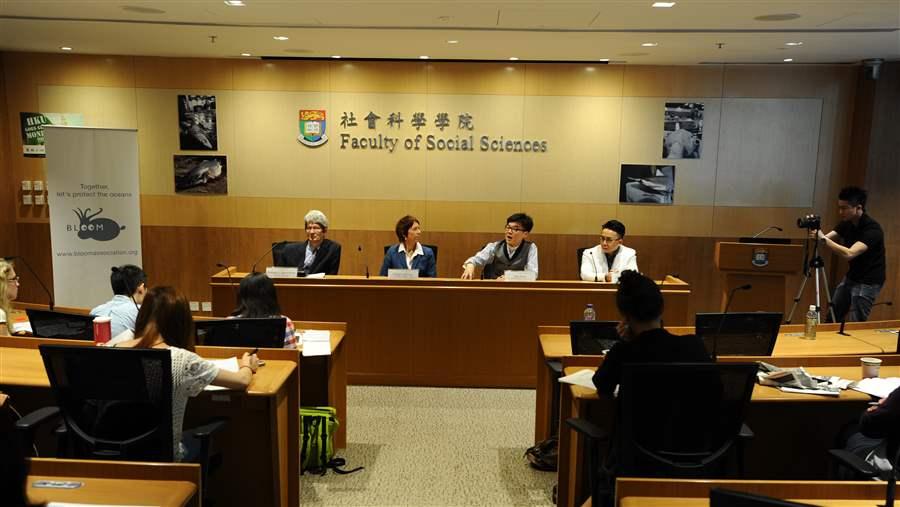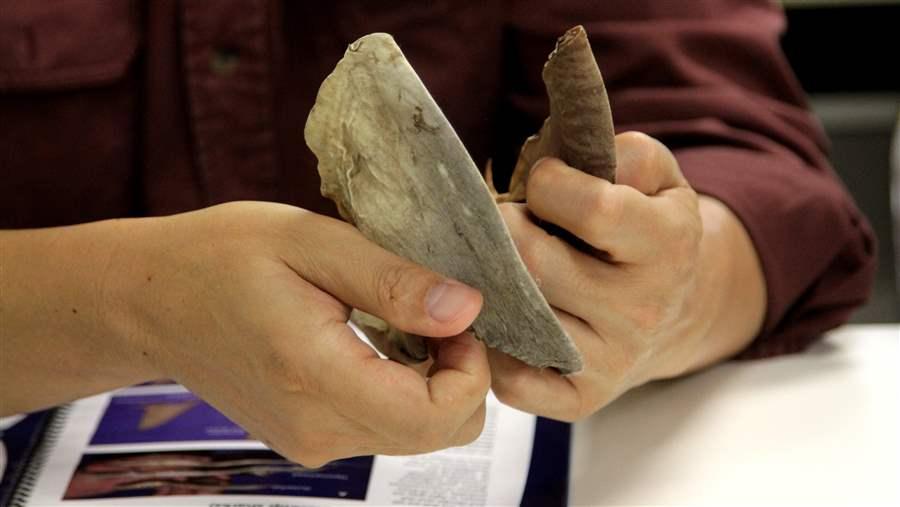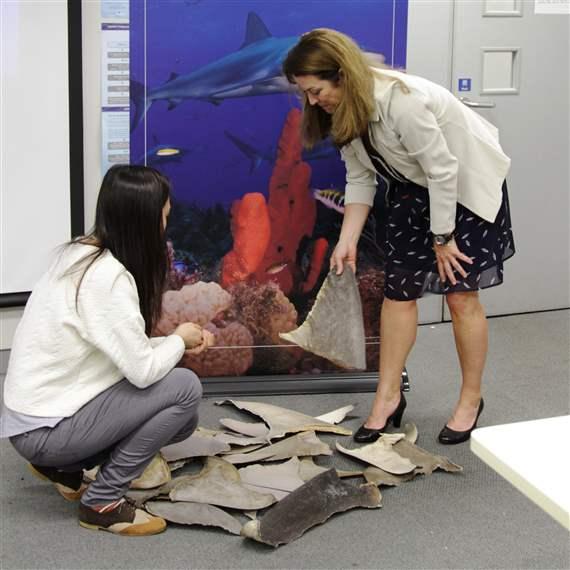Hong Kong Says No to Shark Fin Soup
Survey results, government actions show rising support for shark conservation and stronger management
Here comes the bride … and the vegetarian shark fin soup. If dining trends continue as indicated in a new survey, that scenario could soon be a reality at weddings and banquets all over Hong Kong.
In the past five years, almost 70 percent of Hong Kong residents have reduced or entirely stopped eating shark fin soup, and 81 percent of those who have decreased consumption of the luxury dish said they have done so because of environmental concerns. The welcome news comes from a survey conducted by the Social Sciences Research Centre of the University of Hong Kong. The work was done in collaboration with BLOOM, a marine conservation organization, and supported by The Pew Charitable Trusts, as a follow-up to a similar study in 2009.
 © The Pew Charitable Trusts
© The Pew Charitable TrustsA press conference about the results of a BLOOM, Hong Kong University sociological survey with panelists professor John Bacon-Shone of Hong Kong University, Imogen Zethoven of The Pew Charitable Trusts, Stan Shea of BLOOM, and wedding planner Nelson Cho.
On April 16, I took part in a Hong Kong press conference about the survey results with Stan Shea, BLOOM’s chief marine programme coordinator, and John Bacon-Shone, director of the Social Sciences Research Centre at the University of Hong Kong. And the results are truly astonishing.
Consider this: In just five years, the acceptability of excluding shark fin soup from wedding menus increased from 78 percent in 2009 to 92 percent in 2014. In addition, a large majority of respondents said they were using other foods, such as vegetarian shark fin soup, instead. Less than 1 percent, meanwhile, said they see shark fin soup as an irreplaceable part of a banquet.
Action by the Hong Kong government on marine conservation issues has helped spur this good news. About 93 percent of those surveyed found the government’s 2013 decision to stop serving shark fin soup at all official functions acceptable, and almost 92 percent agreed that the government should do more to regulate the international trade in sharks.
 © The Pew Charitable Trusts
© The Pew Charitable TrustsA workshop participant uses a shark fin identification guide to examine dried fins.
“The momentum we are gaining for the goal of sustainable shark resourcing is encouraging,” Shea said, though he cautioned that there is more to be done. “As long as endangered species of shark and other marine species are still being traded, review and enforcement of trade regulations are necessary.”
But there is good news on this front, too. Despite the fact that Hong Kong is one of the world’s largest traders of shark fin-related products and handles about 50 percent of the globally traded volume every year, its government now plays an important part in efforts to save these threatened species.
The Convention on International Trade in Endangered Species of Wild Fauna and Flora (CITES) voted in 2013 to protect five species of sharks—oceanic whitetip, three species of hammerhead, and porbeagle. These protections require tight global trade regulations, and each of the 181 countries that are parties to CITES must enforce them.
 © The Pew Charitable Trusts
© The Pew Charitable TrustsShark expert Debbie Abercrombie, right, and a workshop participant examine shark fins.
Pew teams have traveled the world since 2013 to help countries implement these trade protections; Hong Kong has been front and center in this work. Megan O’Toole, who works on international policy for Pew’s global shark campaign, helped host an implementation workshop in late April in Hong Kong, along with Shea and Debbie Abercrombie, a shark expert from Stony Brook University in New York.
The workshop, held with officers from Hong Kong’s Agriculture, Fisheries, and Conservation Department (AFCD), focused on shark fin identification. One hundred twenty participants learned how to identify the fins of the CITES-listed species, a skill essential to ensuring that illegally traded fins do not enter the market.
Taken together, the survey results and the AFCD workshop demonstrate shifting attitudes about sharks in Hong Kong. Despite a long tradition of shark fin consumption, opinions are changing, and decision-makers are enforcing the new laws. As vital steps are taken to stem the consumption of shark fins and meat, it’s possible to imagine that Hong Kong will one day no longer be seen as the hub of the world’s shark fin trade.
Imogen Zethoven is director of global shark conservation for The Pew Charitable Trusts.






